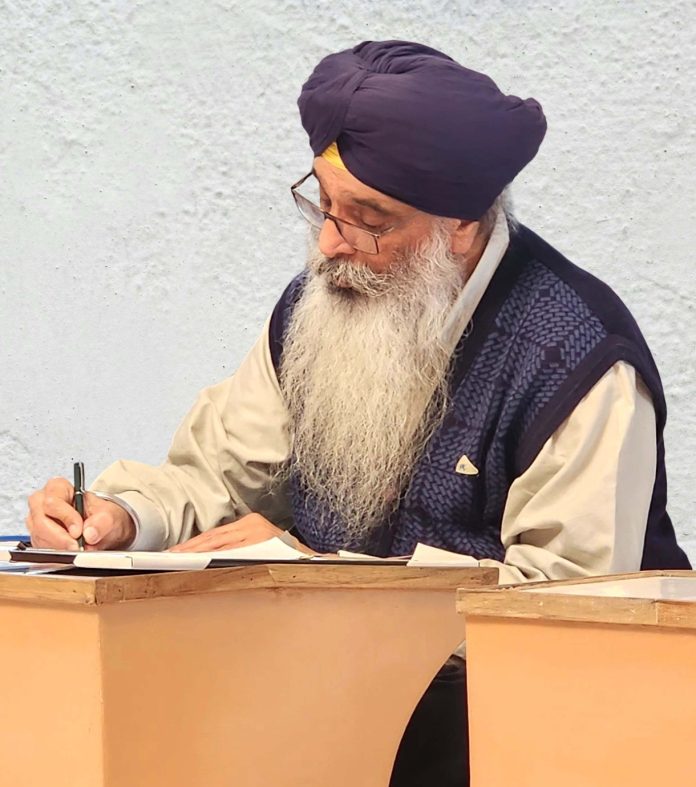JAGMOHAN SINGH, a Ludhiana-based human rights activist, writer, and Convenor of the Sikh Personal Law Board, recently spoke to MOHD NAUSHAD KHAN about Sikh opposition to the Waqf Amendment Act 2025. Singh, who edits The World Sikh News, emphasised that Sikh support for Muslims is based on principle, not political calculation. Excerpts:
What is the Sikh Personal Law Board’s stance on the Waqf Amendment Act?
Sikhs strongly oppose the Waqf Amendment Act 2025. Leaders across the political spectrum in Punjab, including the Jathedar of Akal Takht, have condemned the Act for allowing State interference in the religious affairs of the Muslims.
The Sikh Personal Law Board, formed in response to the push for a Uniform Civil Code, views the amendment as a violation of religious autonomy. The Board maintains that communities should self-govern their religious institutions without State involvement, even without legislative backing if necessary.
Given India’s history of legislative overreach into Sikh institutions, there is growing sentiment that all Sikh religious affairs should be managed under the exclusive authority of Akal Takht. Though, as such, it is not for me to suggest that Muslims should also do the same, the notorious proclivities of the present government prompt me to say that, Muslims may consider evolving a working governance model without or with the minimum involvement of the government.
What is your view on the inclusion of non-Muslims in Waqf bodies?
Including non-Muslims is the height of discrimination. The inclusion of non-Muslims in the Central Waqf Council and Waqf Board should be opposed tooth and nail. Muslims should boycott any meeting in future convened by a non-Muslim member or even a special invitee.
This move mirrors colonial-era tactics, where British authorities inserted themselves into community matters. Today, similar powers are being granted to bureaucrats who lack the understanding and impartiality to handle Waqf-related issues. These government appointees, often under political pressure, cannot be expected to fairly adjudicate matters tied to Islamic traditions and endowments.
Please elaborate on Sikhs’ solidarity with Muslims on this issue.
The Sikh Personal Law Board and broader Sikh leadership stand with the Muslim community not out of fear that Sikhs might be next, but out of commitment to justice and religious freedom.
Despite being a young institution, the Board is alert to legislative, executive, and judicial overreach. Singh argues that minority communities – including Sikhs, Muslims, Christians, Dalits, and others – must unite to resist majoritarian encroachments. Building solidarity and resolving internal differences can empower these groups to defend their rights.
What are the broader implications of the Waqf Amendment Act?
Sadly, apart from a small enlightened section of civil society, the Indians at large have entirely accepted the propaganda of the State machinery.
I fear implementing the Waqf Amendment Act, using bulldozer justice, will have serious repercussions. The government is endeavouring to identify sections of communities to break the backbone of the Muslims. The democratic polity and social fabric of the populace are under siege.
Rejecting 200-plus objections filed by Muslim MPs has the potential to change India’s social and political landscape. On the religious front, communities will become sharper and more introverted in resolving their internal conflicts, which would be a step in the right direction. We are living in dangerous times. Still, I hope for a revolution of change for the better.




